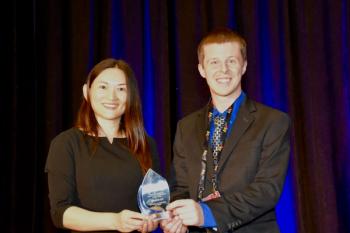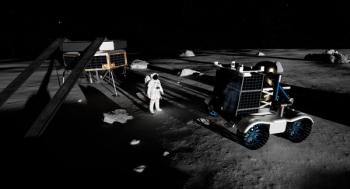
John Reffner to Receive EAS Award for Outstanding Achievements in Vibrational Spectroscopy
The Eastern Analytical Symposium (EAS) Award for Outstanding Achievements in Vibrational Spectroscopy will be presented to John A. Reffner on Tuesday, November 17.
The Eastern Analytical Symposium (EAS) Award for Outstanding Achievements in Vibrational Spectroscopy will be presented to John A. Reffner on Tuesday, November 17. Reffner also gave a talk on “Advancing Our Knowledge Through Studies of Vibrational Spectra.”
Reffner’s scientific interests focus on uniting spectroscopy with microscopy and applying novel technologies to advance materials and forensic science. He pioneered the development of infrared micro-spectrometers, accessories, and innovative applications in infrared microprobe technology. Reffner’s scientific accomplishments are recognized by his receiving the 2016 American Society of Trace Evidence Examiners’ Edmond Locard Award, the 2015 Society of Applied Spectroscopy’s Gold Medal Award, the 2004 American Academy of Forensic Sciences award, the 2004 Paul L. Kirk Award, the 2002 New York Microscopical Society’s Abbe Memorial Award, the 2002 Georgia Microscopical Society’s Honorary Achievement Award, the 2000 Coblentz Society’s Williams-Wright Award, and the 1993 Illinois State Microscopical Society’s Emile M. Chamot Award. In 2011, Reffner was named a fellow of the Society of Applied Spectroscopy (SAS).
Reffner has authored 90 papers and four book chapters while inventing ten patents. He served as a consultant to the Connecticut State Police for over 25 years and has testified as an expert witness in criminal, civil, and intellectual property litigations. He is also on the advisory board of the Dr. Henry C. Lee Institute at the University of New Haven. His employment, since graduation from Akron University, includes B. F. Goodrich, Walter C, McCrone Associates, the University of Connecticut, American Cyanamid, Spectra-Tech, Nicolet, Thermo Scientific, SensIR, and Smiths Detection. Reffner is currently a professor of forensic science at John Jay College, which is part of the City University of New York (CUNY) in New York, New York.
Newsletter
Get essential updates on the latest spectroscopy technologies, regulatory standards, and best practices—subscribe today to Spectroscopy.




